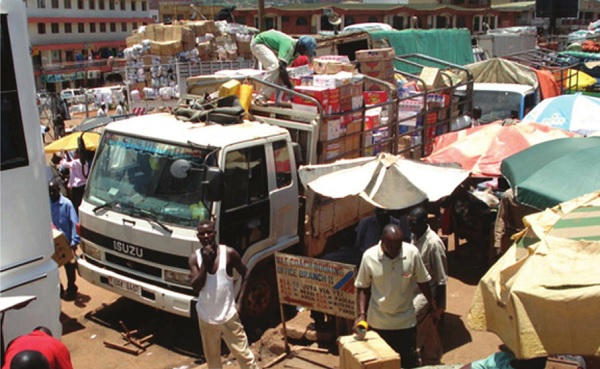
Kampala, Uganda | THE INDEPENDENT | Deliberate falsification of invoices and manipulation of customs rules by organizations and individual traders is costing Uganda trillions of shillings in revenue, a new study has shown.
A study by the Washington-based organisation Global Financial Integrity (GFI) released today March 3, 2020 examined Uganda’s trade all other countries and found that at least USD 687 million (2.5 trillion Shillings) worth of trade was done undetected every year between 2008 and 2017.
This means Uganda was unable to tax this money, which is enough to fund the country’s education sector for a whole year. The study found that at least USD 240 million (889 billion Shillings) annually of the unreported trade was with 36 rich countries.
Titled Trade-Related Illicit Financial Flows in 135 Developing Countries: 2008-2017, the analysis tells us there are gaps in Uganda’s customs checks being exploited by organizations or individual traders to ship goods in or out of the country without being detected thus evading taxes.
This is done by deliberate falsification of their trade values by either under-declaring imports or over declaring exports. The study compared figures the country reported, say to have exported with those reported in the receiving country. The mismatch meant there was something fishy in the declaration and movement of goods showing potential fraud.
It also gives a glimpse into possible corruption with traders or organizations enabled by those in charge to move huge volumes of trade without paying taxes. This can also be one way the corrupt officials move out stolen funds from the country into other countries.
For Uganda, the undetected trade accounts for between 18 and 22 per cent of Uganda’s global trade, the report says. Uganda is not among top countries facing the problem but her figures show how significant the losses could be.
The organisation did the same analysis for at least 135 developing countries and 35 developed countries.
GFI Final Trade IFFs Report 2020 by The Independent Magazine on Scribd
This is technically referred to as trade mis-invoicing or trade fraud – which is the act of the deliberate manipulation of the value of a trade transaction by falsifying, including the price, quantity, quality, and/or country of origin of a good or service by at least one party to the transaction.
This is a well-established method of hiding illicit financial flows within the international commercial trade system, as well as evading and/or exploiting customs regimes.
The findings of the latest report are in sync with earlier reporting which looked at the 2000 to 2012 period and showed that Uganda lost on average $243m annually in trade fraud. The total losses for the period were higher than what the country received in aid from donors.
This compounds Uganda’s struggle to collect taxes with the country’s tax-to-GDP ratio stuck at only 12 per cent. The fraud also explains the government’s inability to fund key priorities because of the lack of enough funds but also resorting to borrowing.
The report indicates if Uganda detected the mis-invoicing, it would have been able to tax and fund a lot of its projects.
Last year, while opening the Uganda Revenue Authority (URA) tower in Nakawa President Yoweri Museveni lashed out at URA honchos for failing to catch those smuggling goods into or out of the country. He also said he knew a telecommunications company that had been under-reporting number of phone calls made both locally and internationally to pay less tax.
URA has recently been on a charm offensive procuring scanners to detect concealments at customs points.
********
URN
 The Independent Uganda: You get the Truth we Pay the Price
The Independent Uganda: You get the Truth we Pay the Price


